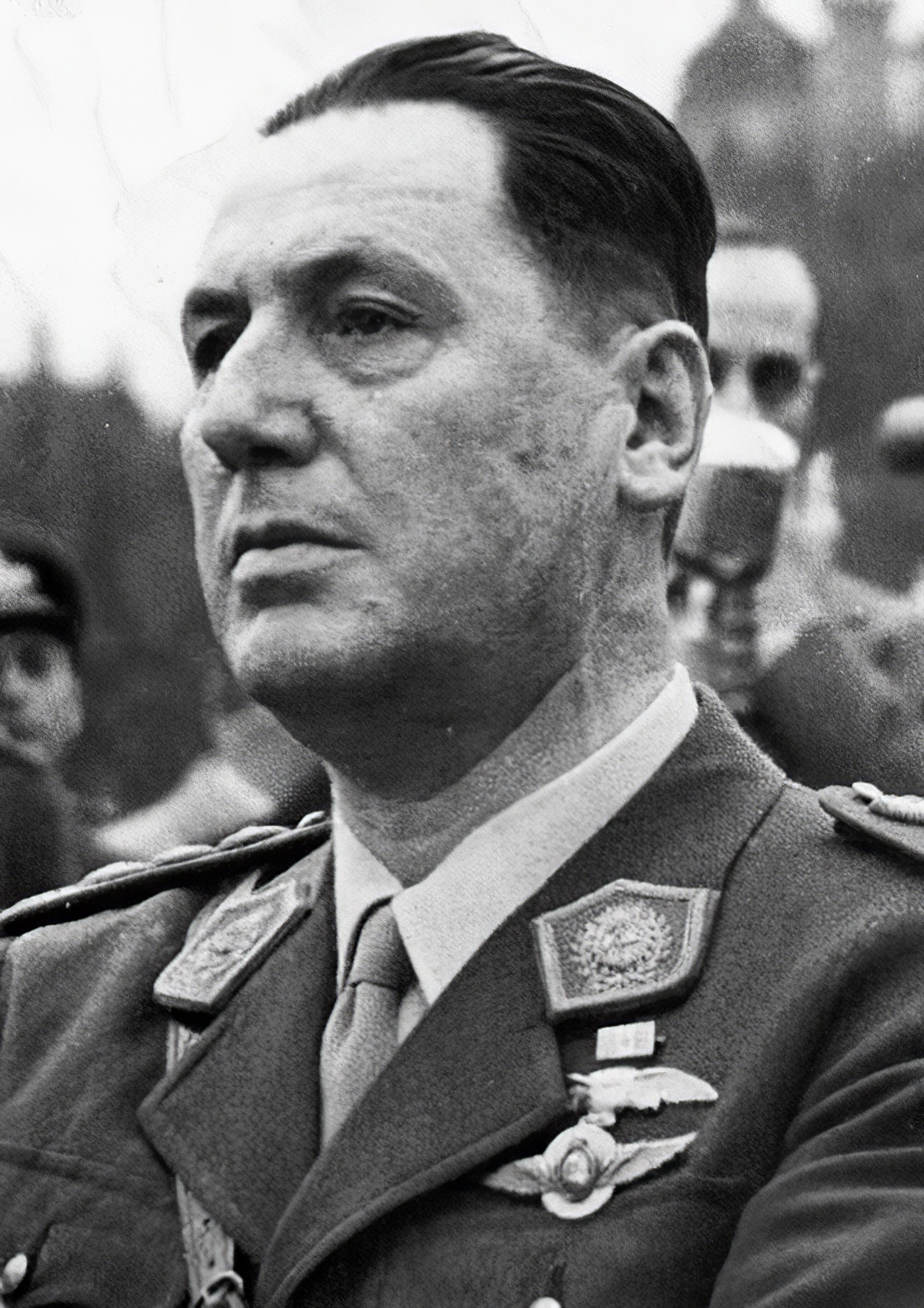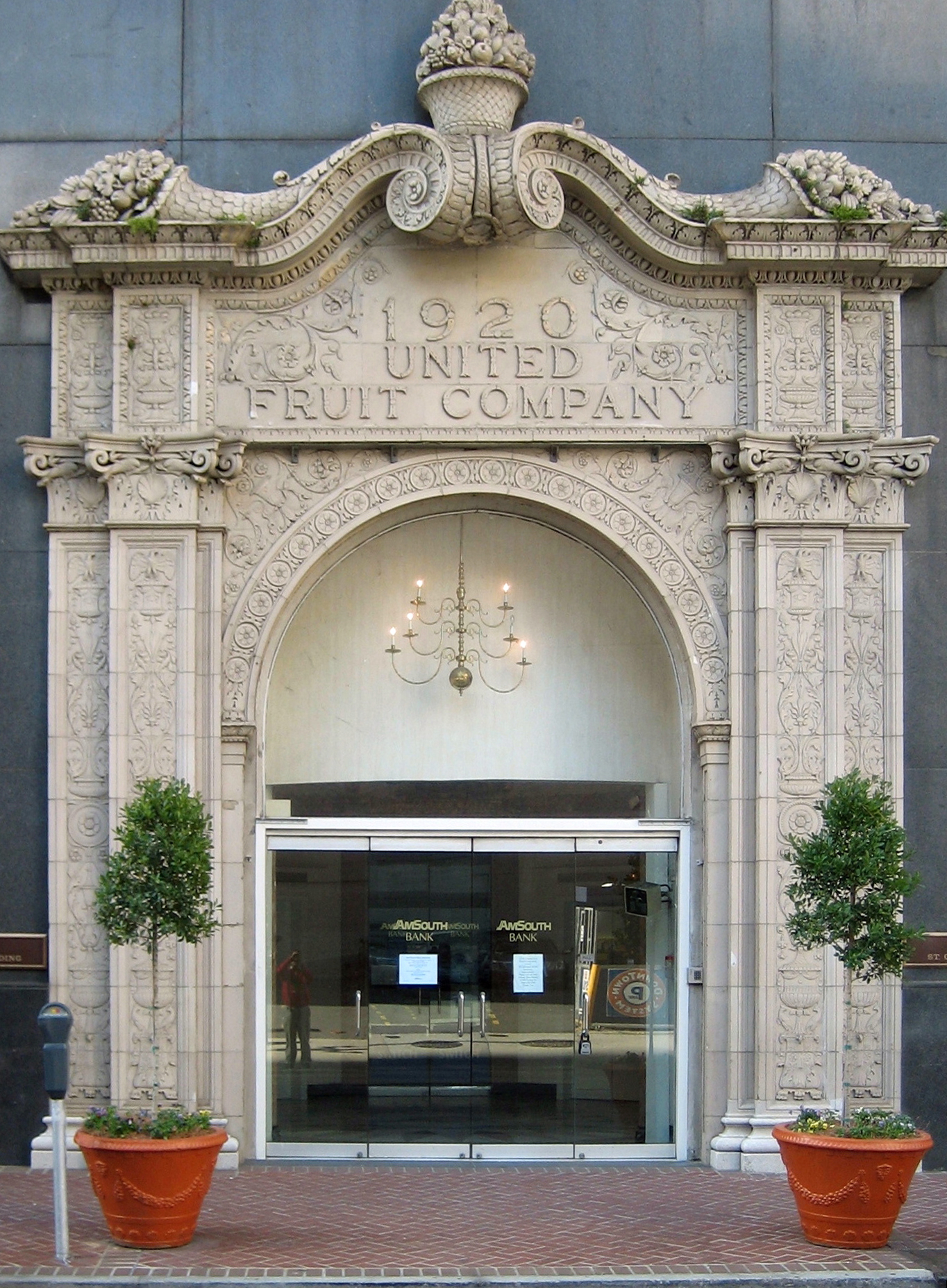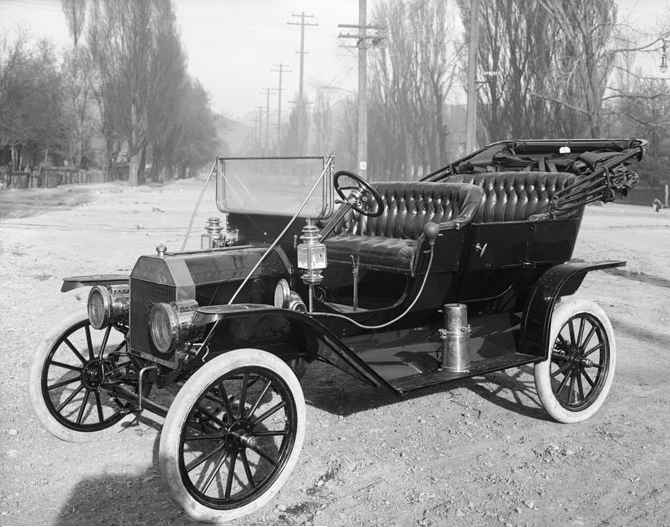|
Mann Doctrine
Thomas Clifton Mann (November 11, 1912 – January 23, 1999) was an American diplomat who specialized in Latin American affairs. He entered the U.S. Department of State in 1942 and quickly rose through the ranks to become an influential establishment figure. He worked to influence the internal affairs of numerous Latin American nations, typically focusing on economic and political influence rather than direct military intervention. After Lyndon B. Johnson became President in 1963, Mann received a double appointment and was recognized as the U.S. authority on Latin America. In March 1964, Mann outlined a policy of supporting regime change and promoting the economic interests of U.S. businesses. This policy, which moved away from the political centrism of Kennedy's Alliance for Progress, has been called the Mann Doctrine. Mann left the State Department in 1966 and became a spokesperson for the Automobile Manufacturer's Association. Early life Born in Laredo, Texas, Laredo, ... [...More Info...] [...Related Items...] OR: [Wikipedia] [Google] [Baidu] |
United States Ambassador To Mexico
The United States has maintained diplomatic relations with Mexico since 1823, when Andrew Jackson was appointed Envoy Extraordinary and Minister Plenipotentiary to that country. Jackson declined the appointment, however, and Joel R. Poinsett became the first U.S. envoy to Mexico in 1825. The rank of the U.S. chief of mission to Mexico was raised from Envoy Extraordinary and Minister Plenipotentiary to Ambassador Extraordinary and Plenipotentiary in 1898. Normal diplomatic relations between the United States and Mexico have been interrupted on four occasions: * From December 28, 1836, to July 7, 1839 (following the secession of Texas) * From March 28, 1845, to October 2, 1848 (during the Mexican–American War) * From June 21, 1858, to April 6, 1859 (during the War of the Reform) * From March 18, 1913, to March 3, 1917 (during the Mexican Revolution; the U.S. embassy was closed on April 22, 1914, following the U.S. occupation of Veracruz). Ambassador Henry Lane Wilson was recalled ... [...More Info...] [...Related Items...] OR: [Wikipedia] [Google] [Baidu] |
Argentine General Election, 1946
The Argentine general election of 1946, the last for which only men were enfranchised, was held on 24 February. Voters chose both the President and their legislators. Background Conservative rule, maintained through electoral fraud despite a moderate record, was brought to an end in a Infamous Decade#1943 coup, June 1943 coup d'état. Barking "orders of the day" every morning on the radio, the new regime enjoyed little approval. The devastating 1944 San Juan earthquake presented an opportunity to regain lost goodwill and the regime moved quickly, involving the private sector through nationwide fund-raising, entrusted to the Labor Minister, Juan Perón. Perón enlisted celebrities for the effort, among which was a radio matinee star of middling talent, Eva Duarte de Perón, Eva Duarte, who introduced herself to the Labor Minister by remarking that "nothing's missing, except a touch of Hair tonic, Atkinson's". The effort's success and the rise of his ally, Edelmiro Farrell, withi ... [...More Info...] [...Related Items...] OR: [Wikipedia] [Google] [Baidu] |
Castillo Armas
Carlos Castillo Armas (; 4 November 191426 July 1957) was a Guatemalan military officer and politician who was the 28th president of Guatemala, serving from 1954 to 1957 after taking power in a coup d'état. A member of the right-wing National Liberation Movement (MLN) party, his authoritarian government was closely allied with the United States. Born to a planter, out of wedlock, Castillo Armas was educated at Guatemala's military academy. A protégé of Colonel Francisco Javier Arana, he joined Arana's forces during the 1944 uprising against President Federico Ponce Vaides. This began the Guatemalan Revolution and the introduction of representative democracy to the country. Castillo Armas joined the General Staff and became director of the military academy. Arana and Castillo Armas opposed the newly elected government of Juan José Arévalo; after Arana's failed 1949 coup, Castillo Armas went into exile in Honduras. Seeking support for another revolt, he came to the atten ... [...More Info...] [...Related Items...] OR: [Wikipedia] [Google] [Baidu] |
Norman Armour
Norman Armour (October 14, 1887– September 27, 1982) was a career United States diplomat whom ''The New York Times'' once called "the perfect diplomat". In his long career spanning both World Wars, he served as Chief of Mission in eight countries, as Assistant Secretary of State for Political Affairs, and married into Russian nobility. He was the United States Ambassador to Canada. Career Armour was born in Brighton, England, while his parents were vacationing there. He was the grandson of George Armour. He grew up in Princeton, New Jersey, and graduated from St. Paul's School, and from Princeton University in 1909. In 1913, he graduated from Harvard Law School, before returning to Princeton to study diplomacy. His first posts were to Austria in 1912 and France from 1915–1916 before formally entering the Foreign Service. Russia One of his first assignments in the Foreign Service was as Second Secretary in the United States embassy in Petrograd in the Russian Empire, beginnin ... [...More Info...] [...Related Items...] OR: [Wikipedia] [Google] [Baidu] |
1954 Guatemalan Coup D'état
The 1954 Guatemalan coup d'état was the result of a CIA covert operation code-named PBSuccess. It deposed the democratically elected Guatemalan President Jacobo Árbenz and ended the Guatemalan Revolution of 1944–1954. It installed the military dictatorship of Carlos Castillo Armas, the first in a series of U.S.-backed authoritarian rulers in Guatemala. The Guatemalan Revolution began in 1944, after a popular uprising toppled the military dictatorship of Jorge Ubico. Juan José Arévalo was elected president in Guatemala's first democratic election. He introduced a minimum wage and near-universal suffrage, and turned Guatemala into a democracy. Arévalo was succeeded in 1951 by Árbenz, who instituted land reforms which granted property to landless peasants. The Guatemalan Revolution was disliked by the United States federal government, which was predisposed during the Cold War to see it as communist. This perception grew after Árbenz had been elected and formally lega ... [...More Info...] [...Related Items...] OR: [Wikipedia] [Google] [Baidu] |
Decree 900
Decree 900 ( es, Decreto 900), also known as the Agrarian Reform Law, was a Guatemalan land-reform law passed on June 17, 1952, during the Guatemalan Revolution. The law was introduced by President Jacobo Árbenz Guzmán and passed by the Guatemalan Congress. It redistributed unused land greater than in area to local peasants, compensating landowners with government bonds. Land from at most 1,700 estates was redistributed to about 500,000 individuals—one-sixth of the country's population. The goal of the legislation was to move Guatemala's economy from pseudo-feudalism into capitalism. Although in force for only eighteen months, the law had a major effect on the Guatemalan land-reform movement. Indigenous groups, deprived of land since the Spanish conquest, were major beneficiaries of the decree. In addition to raising agricultural output by increasing the cultivation of land, the reform is credited with helping many Guatemalans find dignity and autonomy. The expropriation of l ... [...More Info...] [...Related Items...] OR: [Wikipedia] [Google] [Baidu] |
United Fruit Company
The United Fruit Company (now Chiquita) was an American multinational corporation that traded in tropical fruit (primarily bananas) grown on Latin American plantations and sold in the United States and Europe. The company was formed in 1899 from the merger of the Boston Fruit Company with Minor C. Keith's banana-trading enterprises. It flourished in the early and mid-20th century, and it came to control vast territories and transportation networks in Central America, the Caribbean coast of Colombia and the West Indies. Although it competed with the Standard Fruit Company (later Dole Food Company) for dominance in the international banana trade, it maintained a virtual monopoly in certain regions, some of which came to be called banana republics – such as Costa Rica, Honduras, and Guatemala. United Fruit had a deep and long-lasting impact on the economic and political development of several Latin American countries. Critics often accused it of exploitative neocolonialism, and ... [...More Info...] [...Related Items...] OR: [Wikipedia] [Google] [Baidu] |
Jacobo Árbenz Guzmán
Jacobo is both a surname and a given name of Spanish origin. Based on the name Jacob. Notable people with the name include: Surname: *Alfredo Jacobo (born 1982), Olympic breaststroke swimmer from Mexico *Cesar Chavez Jacobo, Dominican professional basketball player *Clara Jacobo, Italian opera singer Given name: *Jacobo Majluta Azar (born 1934), politician from Dominican Republic, was president for 43 days *Jacobo Arenas (1924–1990), Colombian guerrilla and ideological leader of FARC *Dan Jacobo Beninson (1931–2003), Argentine radiation expert *Jacobo Bolbochán (1906–1984), Argentine chess master *Jacobo Borges (born 1931), contemporary, neo-figurative Latin-American artist * Jacobo Díaz (born 1976), former professional male tennis player from Spain * Juan Jacobo Fernandez (1808–1860), Franciscan friar, a martyr who achieved beatification *Jacobo Fijman (1898–1970), Argentine poet born in Bessarabia, now mainly in Moldova *Jacobo Fitz-James Stuart, 17th Duke of Alb ... [...More Info...] [...Related Items...] OR: [Wikipedia] [Google] [Baidu] |
Petroleum
Petroleum, also known as crude oil, or simply oil, is a naturally occurring yellowish-black liquid mixture of mainly hydrocarbons, and is found in geological formations. The name ''petroleum'' covers both naturally occurring unprocessed crude oil and petroleum products that consist of refined crude oil. A fossil fuel, petroleum is formed when large quantities of dead organisms, mostly zooplankton and algae, are buried underneath sedimentary rock and subjected to both prolonged heat and pressure. Petroleum is primarily recovered by oil drilling. Drilling is carried out after studies of structural geology, sedimentary basin analysis, and reservoir characterisation. Recent developments in technologies have also led to exploitation of other unconventional reserves such as oil sands and oil shale. Once extracted, oil is refined and separated, most easily by distillation, into innumerable products for direct use or use in manufacturing. Products include fuels such as gasol ... [...More Info...] [...Related Items...] OR: [Wikipedia] [Google] [Baidu] |
Vanadium
Vanadium is a chemical element with the symbol V and atomic number 23. It is a hard, silvery-grey, malleable transition metal. The elemental metal is rarely found in nature, but once isolated artificially, the formation of an oxide layer ( passivation) somewhat stabilizes the free metal against further oxidation. Spanish scientist Andrés Manuel del Río discovered compounds of vanadium in 1801 in Mexico by analyzing a new lead-bearing mineral he called "brown lead". Though he initially presumed its qualities were due to the presence of a new element, he was later erroneously convinced by French chemist Hippolyte Victor Collet-Descotils that the element was just chromium. Then in 1830, Nils Gabriel Sefström generated chlorides of vanadium, thus proving there was a new element, and named it "vanadium" after the Scandinavian goddess of beauty and fertility, Vanadís (Freyja). The name was based on the wide range of colors found in vanadium compounds. Del Rio's lead mineral was ... [...More Info...] [...Related Items...] OR: [Wikipedia] [Google] [Baidu] |
Strategic Material
Strategic material is any sort of raw material that is important to an individual's or organization's strategic plan and supply chain management. Lack of supply of strategic materials may leave an organization or government vulnerable to disruption of the manufacturing of products which require those materials. It can also refer to a group or department that manages these materials. In government terms, they are materials, usually raw materials that have a particular strategic significance to a government or nation, often in time of war. Their strategic need is because of their crucial importance for either economic or military purposes. Some materials are relatively simple, but are required in great quantities during wartime. Others are obscure and technically complex. Although not required in large quantities, their irreplaceability and critical need makes them especially valuable. Foodstuffs are not generally classed as strategic materials: although vital, they are treated ... [...More Info...] [...Related Items...] OR: [Wikipedia] [Google] [Baidu] |
Bolivian Revolution
The Bolivian Revolution of 1952 (), also known as the Revolution of '52, was a series of political demonstrations led by the Revolutionary Nationalist Movement (RNM, MNR), which, in alliance with liberals and communists, sought to overthrow the ruling Bolivian oligarchy and implement a new socioeconomic model in Bolivia. Its main leaders were the former presidents Víctor Paz Estenssoro and Hernán Siles Zuazo. The MNR government after this Revolution lasted from 9 April 1952 until the coup of 4 November 1964. In these twelve years, there was a co-government and at the same time a power struggle between the party and the labor unions. The Revolution of 1952 sought to implement the rights to vote in Bolivia, the distribution of land and State control over natural resources and the Bolivian economy. In addition, it incorporated the peasant and female sector into political life by establishing universal suffrage. It was a political Revolution that at the time was equated to the ... [...More Info...] [...Related Items...] OR: [Wikipedia] [Google] [Baidu] |






_-_CROPPED.jpg)